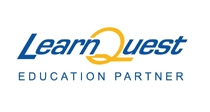Quality and Productivity
ASQ Certified Quality Engineer Certification Preparation
Why Attend
This course is intended for those planning to sit for the 'Certified Quality Engineer' exam. This course provides a very thorough overview of the reliability, acceptance sampling, and quantitative methods topics covered in the body of knowledge for the ASQ Certified Quality Engineer (CQE) exam.
Course Methodology
This course is designed to teach topics which are most commonly addressed on the CQE exam. Each topic is presented in a practical, easy to follow manner that emphasizes the practical application of the tools covered. A comprehensive manual, designed for use as an exam reference book, is provided to each attendee. This is not an introductory course and is intended for those planning to sit for the Certified Quality Engineer Exam. However, the topics are covered in such sufficient detail that people with little advance knowledge of the concepts will be able to master them with practice. Participants will be given the opportunity to practice most quantitative tools during class as well as with optional homework exercises. It includes an appendix that includes all necessary statistical tables and a removable set of more than 500 sample exam questions (with an answer key) for exam study purposes. Group discussions and exercises will be used to
Course Objectives
By the end of the course, participants will be able to:- Review the body of knowledge in preparation for the 'ASQ' Certified Quality Engineer examination
- Master the effective use of the tools covered in the quantitative methods, reliability, and acceptance sampling sections of the body of knowledge
- Apply the components of the Body of Knowledge (BOK) to further focus their preparation efforts
- Explain, through discussions, the main concepts in each of the BOK elements
- Refine their thinking approach in preparation for the ‘constructed response’ section of the examination
- Practice mock exams
Target Audience
Quality engineers, manufacturing/process engineers, quality managers, quality improvement professionals, consultants, or anyone preparing to take the CQE exam should attend this training.
Target Competencies
- Quality improvement and management
- Problem solving
- Process management
- Quantitative methods
- Reliability
- Acceptance sampling
- Quality system and quality models
Note
* All attendees are required to bring their own copy of the ANSI/ASQ Z1.4-2008 standard to this training course. These will not be provided for you. You can purchase a copy of this standard from ASQ web site.
*Taking this course does not constitute or imply the successful passing of the ASQ Certified Quality Engineer exam. Participants will need to study other CQE BOK topics and practice course concepts outside of class to adequately prepare for the exam.
*This course is designed to teach the reliability, acceptance sampling, and quantitative methods topics included in the BOK, so no prior knowledge of statistics is necessary. However, a solid understanding of basic algebra and the ability to work with algebraic formulas is required. Experience as a quality engineer is required to qualify for the exam.
*Bring a scientific calculator preferably model Casio fx-991ES Plus as this model is going to be used in the class

Course Outline
- Management and Leadership
- Quality Philosophies and Foundations
- Evolution of Quality
- Continuous improvement tools
- The Quality Management System (QMS)
- ASQ Code of Ethics for Professional Conduct
- Leadership Principles and Techniques
- Facilitation Principles and Techniques
- Customer Relations
- Supplier Management
- Quality Standards and Other Guidelines
- Acceptance Sampling
- General Concepts
- Type I (Producer’s) and Type II (Consumer’s) Risk
- Operating Characteristics (OC) Curves
- Overview of Acceptance Sampling Plans
- Reliability and Risk Management
- Terms and Definitions
- Reliability Life Characteristic Concepts
- Design of Systems for Reliability (Series, Parallel-Series, and Series-Parallel Systems)
- Active vs. Passive Redundancy
- Availability and Maintainability
- Failure Rates and the Bathtub Curve
- Methods to Maintain Process and Product Reliability
- Calculation of MTTF and MTBF
- Quantitative Concepts
- Concepts of Probability and Statistics
- Collecting and Summarizing Data
- Properties and Applications of Probability Distributions
- Statistical Decision-Making
- Confidence Intervals, Hypothesis Tests, Paired-t Tests
- Relationships Between Variables
- Designing Experiments
- Statistical Process Control (SPC)
- Analyzing Process Capability
- Relationships Between Variables
- Linear Regression
- Simple Linear Correlation
- Time Series Analysis
- Correlation and Causation
- Statistical Process Control
- Objectives and Benefits
- Common and Special Causes
- Selection of Variable
- Rational Subgrouping
- Control Charts (Variable Data)
- Control Chart Analysis
- Control Charts (Attribute Data)
- Pre-Control Charts
- Short-Run SPC
- Comparing before and after Control charts
REQUEST CALL BACK
Would you like to speak to one of our consulting advisers over the phone? Just submit your details and we’ll be in touch shortly.














